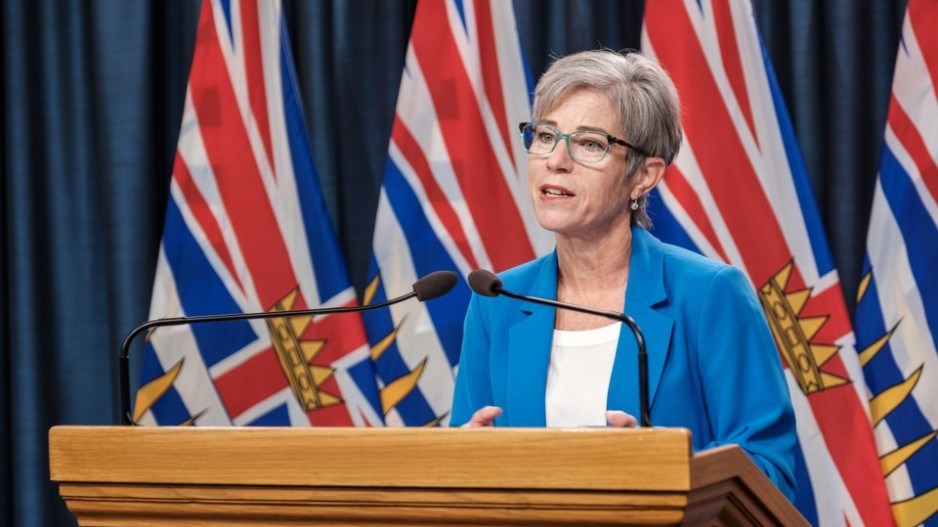As B.C.’s economy navigates uncertain waters between a pandemic and a possible global economic recession in 2023 -- precipitated by an energy crisis, war, inflation and rising interest rates -- it appears B.C.’s ship of state is still steady and not taking on any water.
Employment remains strong, revenues from commodities like natural gas are up, and a $5.5 billion deficit that had been forecast for 2022-23 is now expected to be an operating surplus of $706 million, according to an economic uopdate based on the first quarter of the fiscal year that was released today by B.C. Finance Minister Selina Robinson.
“While we can’t ignore today’s global inflation and the economic turbulence ahead, the province performed better than expected because British Columbians have worked hard to keep our economy going,” Robinson said.
While there are fears that inflation is curbing economic growth, and could lead to a recession in the U.S., Europe and China in 2023, B.C.’s economy is proving resilient so far. B.C.’s unemployment rate remains low, at just 4.8%, and employment is up 3.6% this year as of August.
B.C.’s nominal gross domestic product (GDP) is forecast to grow by 11.6% in 2022 and 3.5% in 2023. When inflation is accounted for, real GDP growth is forecast to be 3.2% in 2022 and 1.5% in 2023.
However, B.C. economy does appear to be seeing some some cooling, as a result of inflation.
While retail sales are up 1.5% in the first six months of the year, higher costs for consumer goods has resulted in “moderating” retail spending.
And while housing construction is still “elevated” for a 10-year average, home sales have fallen below average historical levels in recent months, the Ministry of Finance notes.
On the other hand, high commodity prices have been good for B.C.’s resource economy. Natural gas royalties are up $1.7 billion this year.
“Strong commodity prices, such as natural gas and coal have benefitted the value of B.C. goods exports,” the ministry notes. ”Year-to-date to June 2022, B.C. goods exports were up 32.1% and service exports are continuing to recover as tourism resumes.”
Inflation remains high, however, which introduces uncertainty into economic forecasts, since the cure for inflation – rising interest rates – are designed to cool spending and can curb economic growth.
“A lot can change between now and the end of the year, and we need to keep making thoughtful decisions – especially with everything that’s going on around the world,” Robinson said.
“But this indicates that we’re in a strong position to continue investing in the things people need to reduce costs, strengthen services and build a stronger B.C. for everyone.”




